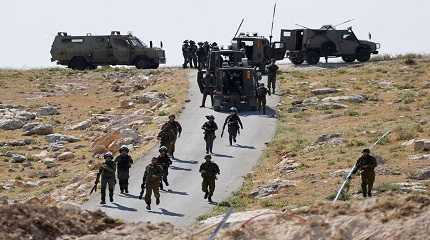
JERUSALEM/GAZA, Nov. 2 (Xinhua) -- The death toll has exceeded 10,000 since the Israel-Hamas conflict broke out on Oct. 7, according to Palestinian and Israeli sources.
The number of Palestinian casualties in Gaza has now reached at least 8,796, including 3,648 children and 2,290 women, according to the Gaza-based Health Ministry, while more than 1,400 people in Israel have been killed, said the Israeli Foreign Ministry.
On Wednesday, at least 320 foreign citizens on an initial list of 500, as well as dozens of severely injured Gazans, crossed into Egypt through the Rafah border crossing under a deal between Israel, Egypt and Hamas.
The Egyptian Health Ministry said some of the evacuees had been transferred to the Al-Arish and Bir Al-Abd hospitals in North Sinai, adding that quarantine doctors at the Rafah crossing conducted medical examinations for 117 foreign nationals, including 35 children who received necessary vaccinations.
"All cases are stable and receiving superior medical care from the medical teams at the crossing or inside the hospitals," the ministry said.
The death toll in the Gaza Strip continues to climb as hospitals and refugee shelters are hit. Nearly 70 percent of those reported killed in Gaza are children and women. Save the Children, an international non-governmental organization, reported that nearly 3,200 children have been killed in Gaza in just three weeks.
This surpasses the number of children killed annually across the world's conflict zones since 2019, Philippe Lazzarini, the commissioner-general of the United Nations (UN) Agency for Palestine Refugees, said on Monday. "This cannot be 'collateral damage,'" he noted.
On Oct. 28, the UN General Assembly adopted a resolution that calls for "an immediate, durable and sustained humanitarian truce leading to a cessation of hostilities," including the protection of civilians, the protection of humanitarian personnel and facilities, and the "immediate and unconditional release" of all civilians being illegally held captive.
The resolution was adopted with 120 votes in favor, 14 votes against, and 45 abstentions. The United States and Israel voted against the draft resolution.
Earlier on Oct. 16, the United States voted against a Russian-drafted resolution that called for a humanitarian ceasefire in Gaza, and again vetoed a Brazilian-drafted resolution that would have called for humanitarian pauses in Gaza two days later.
Despite international calls for a humanitarian ceasefire, Israel continued heavy bombings on the densely populated Gaza Strip and intensified its ground offensive, sending troops deep into Palestinian territory.
The Israel Defense Forces (IDF) said its soldiers engaged in "fierce battles" with Hamas "deep in the Gaza Strip," adding that Israeli troops attacked hundreds of military targets of Hamas, including anti-tank missile and rocket launching posts below shafts and military compounds inside underground tunnels, and killed "numerous" Hamas militants.
"We are advancing in the stages of the war and operating on the ground inside the enemy's territory," IDF Chief of the General Staff Herzi Halevi wrote in a letter sent to commanders and soldiers, vowing "it will be long, and we will fight until the end."
Israeli Defense Minister Yoav Gallant said during a visit of armored troops deployed on the Gaza border that Israel would continue coordinated strikes on Gaza from the air, ground and sea, and the military has taken actions to expose tunnels to "deal heavy blows to enemies within."
On the diplomatic front, Bolivia has severed its diplomatic ties with Israel. Meanwhile, Jordan, Chile, and Colombia have recalled their ambassadors.




